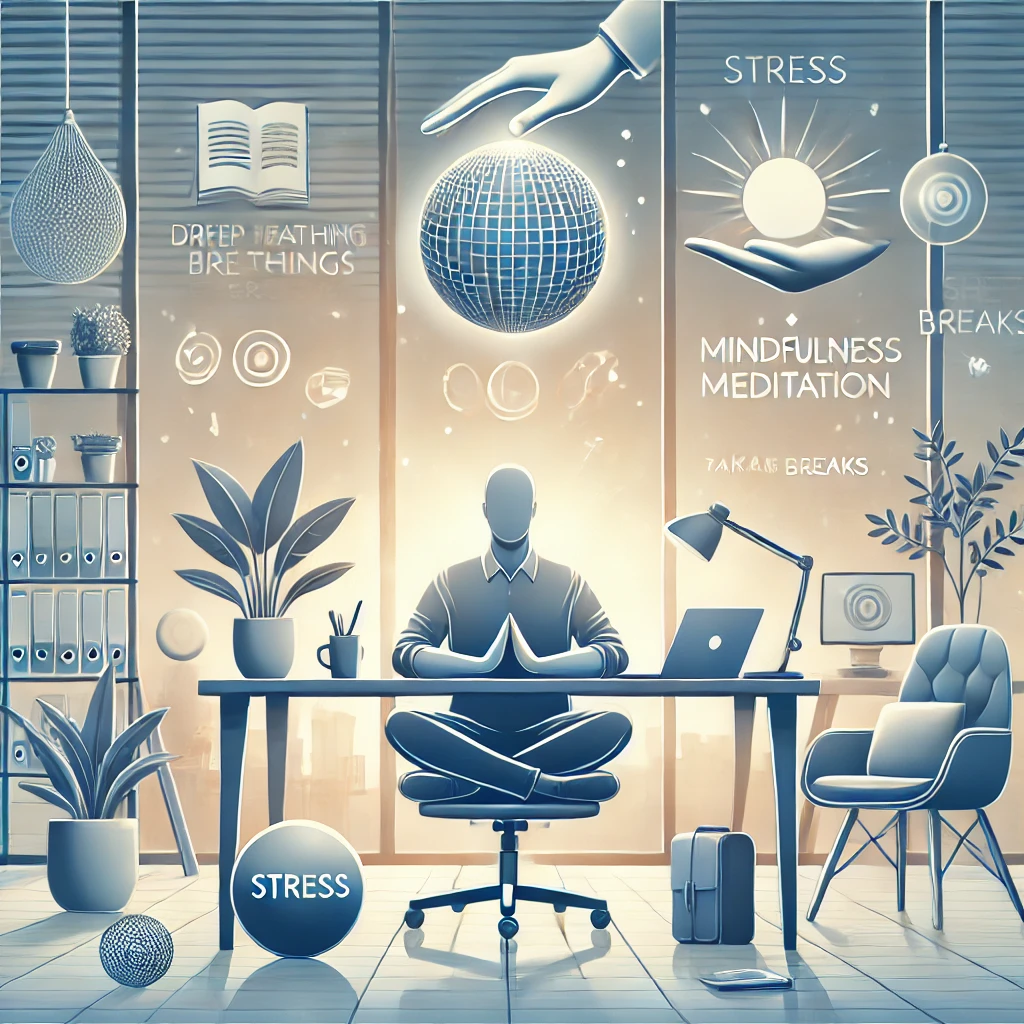
Mental Health Tips for Handling Workplace Stress
Struggling with workplace stress? Learn how to manage it with these practical mental health tips, fitness routines, and self-care strategies.
Why Workplace Stress Is a Big Deal
Workplace stress isn’t just about feeling overwhelmed—it affects your mental health, productivity, and even physical well-being. From tight deadlines to toxic work environments, stress can creep up in many ways. But the good news? You can take control with the right strategies.
How Fitness Routines Can Help Reduce Stress
Exercise is a game-changer when it comes to handling stress. Whether you're lifting weights, going for a run, or practicing yoga, physical activity releases endorphins that help combat anxiety and depression.
Creating a Personalized Fitness Plan
Not sure where to start? How to create a personalized fitness plan involves identifying what activities you enjoy, setting realistic goals, and staying consistent.
Affordable Fitness Routines for Busy Professionals
You don’t need expensive equipment to stay fit. Affordable fitness routines for busy professionals include bodyweight exercises, resistance bands, and home workouts that fit into your schedule.
Healthy Eating Plans to Boost Your Mental Well-being
Your diet plays a massive role in mental health. Junk food might give you a temporary dopamine hit, but it also leads to crashes and fatigue. Try these eating habits instead:
Top 10 Diet Tips to Maintain a Healthy Lifestyle
- Eat whole, unprocessed foods.
- Stay hydrated.
- Include lean proteins.
- Reduce sugar intake.
- Incorporate healthy fats.
- Consume fiber-rich foods.
- Eat more greens.
- Avoid excessive caffeine.
- Plan your meals.
- Practice mindful eating.
Top Diet Trends for Weight Loss in 2025
Looking for the latest wellness trends 2025? Expect more plant-based meals, intermittent fasting, and gut-friendly diets taking center stage.
Simple Meditation Practices for a Clear Mind
Sometimes, all you need is a few minutes of stillness. Simple meditation practices can help you refocus, reduce stress, and increase mental clarity.
Best Mindfulness Practices for Reducing Stress
Want to ease your workday stress? Best mindfulness practices for reducing stress include deep breathing, guided meditation, and gratitude journaling.
The Role of Sleep in Mental Health
Sleep isn’t a luxury—it’s a necessity. Poor sleep can lead to anxiety, irritability, and burnout.
The Connection Between Sleep and Productivity
Did you know that the connection between sleep and productivity is backed by science? A well-rested mind functions better, improves decision-making, and enhances creativity.
Self-Care Strategies to Combat Workplace Stress
Self-care isn’t selfish—it’s essential. Try these strategies:
Beginner's Guide to Yoga for Workplace Stress
Never tried yoga before? A beginner's guide to yoga will help you get started with simple poses that improve flexibility and reduce stress.
How to Create a Work-Life Balance
Set boundaries, take breaks, and prioritize your well-being. A work-life balance ensures you don’t burn out.
Wellness Trends 2025: What to Expect
The future of wellness is exciting! Expect a focus on mental health, sustainable fitness, and holistic well-being in wellness trends 2025.
Conclusion
Workplace stress is real, but it doesn’t have to control your life. From fitness routines and healthy eating plans to meditation and sleep, small changes can make a big difference. Take care of your mental health—because you deserve it.
Frequently Asked Questions
1. What are some quick stress-relief techniques for work?
Try deep breathing, a short walk, stretching, or listening to calming music to reset your mind.
2. How can I stay active if I have a desk job?
Incorporate desk exercises, take the stairs, and schedule movement breaks to keep your body active.
3. What foods help reduce workplace stress?
Foods rich in omega-3s, magnesium, and antioxidants—like salmon, nuts, and berries—can help manage stress.
4. How does sleep affect my mental health at work?
Poor sleep leads to brain fog, irritability, and decreased productivity. Aim for 7-9 hours per night.
5. Can yoga really help with work-related stress?
Absolutely! Yoga improves flexibility, reduces tension, and helps you stay calm and focused throughout the day.